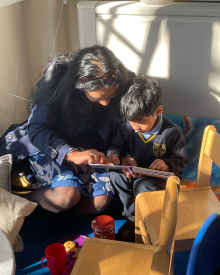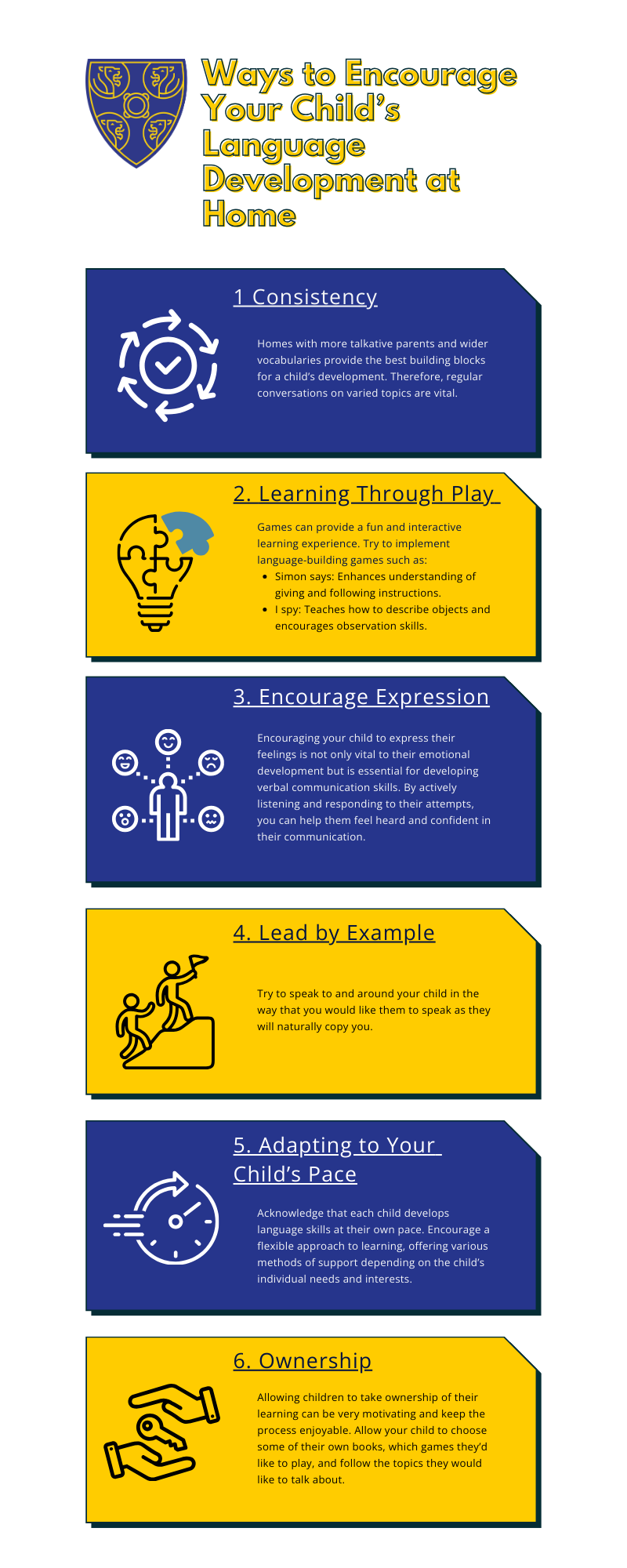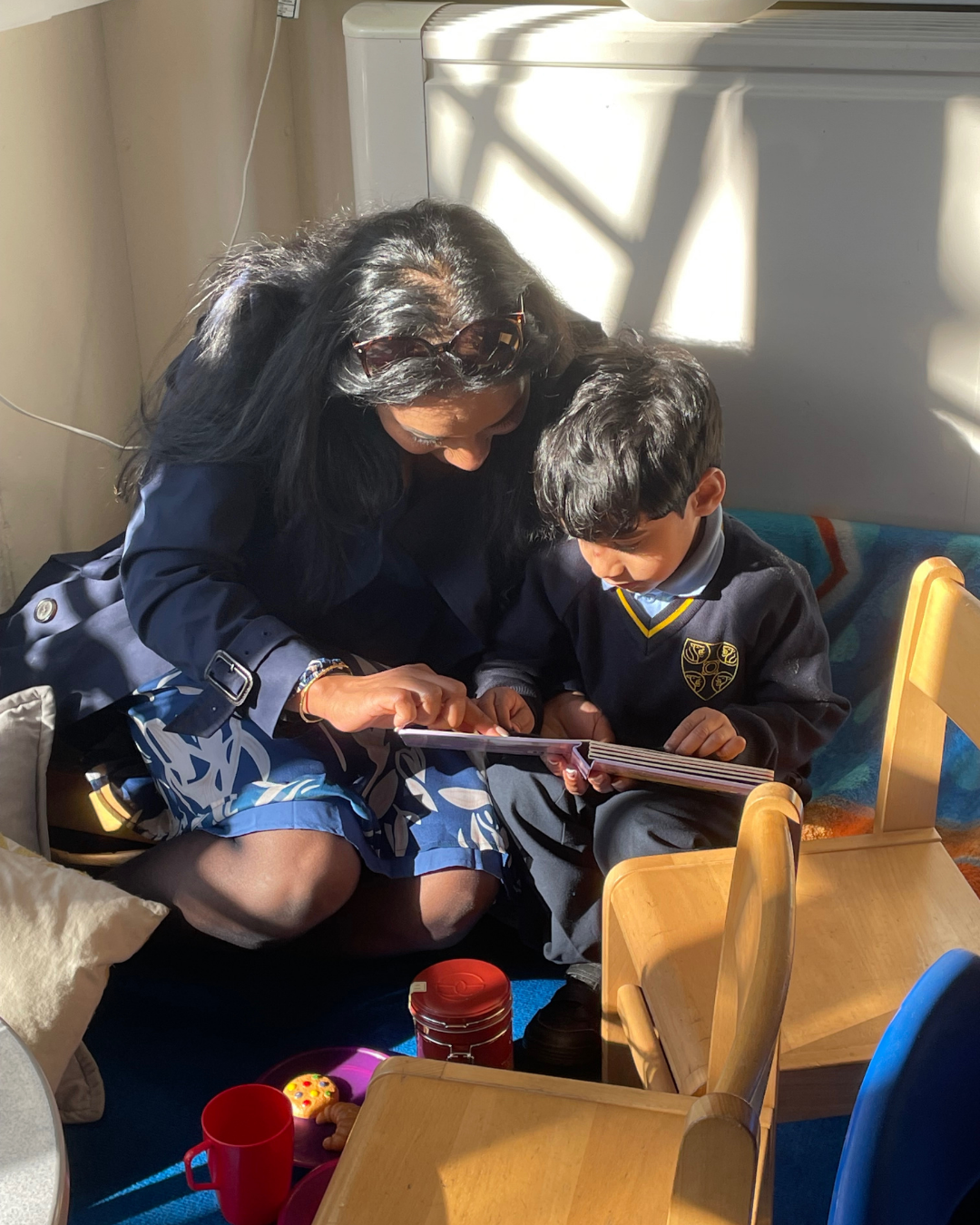
Author: Miss Kayleigh Debil – French Lead/Teacher at Chorister School
Early language development in children plays an integral role in the intellectual and social growth of a child. It supports cognitive development and lays the foundation for literacy skills, while also helping children to express emotions and develop creativity. Although language development can certainly excel at school, the right foundations for growth are built at home.
Early language development is highly dependent on interactions with parents and caregivers, even in pre-verbal stages. In homes that are more language-rich with parents talking to their children very frequently, children develop intellectually at a noticeably faster rate. Prioritising diversity of language at home can set up a child for a much better entry to school and continued experience throughout. Vocabulary at age five can be a strong predictor of the qualifications the child achieves at the end of school.
With early language development being a key to a child’s lifelong success, here are a few tips on how to effectively implement this at home.
- Consistent Practice
Homes with more talkative parents and wider vocabularies provide the best building blocks for a child’s development. Therefore, regular conversations on varied topics are vital. Verbal communication with your child can also be easily increased through regular storytelling involving reading aloud. Aim to schedule daily reading into your routine.
Try to:
- Read aloud daily: The more exposure to language, the more children can absorb.
- Implement interactive reading: Engage with your child by asking questions like “What do you think will happen next?” or “How do you think this character feels?”.
- Expand on your child’s vocabulary: For example, when your child says, “I saw a big dog”, you could respond, “Yes, it was a large, fluffy dog”.
- Remember consistency is key!
2. Learning Through Play
Games can provide a fun and interactive learning experience. Try to implement language-building games such as:
- Simon says: Enhances understanding of giving and following instructions.
- I spy: Teaches how to describe objects and encourages observation skills.
- Themed word sorting: Sort words into categories to help you child expand their vocabulary and learn how to characterise objects.
- Puppet show: Hold a conversation with puppets to practise speech in a fun way.
- Flashcards: Have a picture on one side, with the name of the object on the other side. Ask your child to try and figure out the word from the image.
3. Encourage Expression
Encouraging your child to express their feelings is not only vital to their emotional development but is essential for developing verbal communication skills. By actively listening and responding to their attempts, you can help them feel heard and confident in their communication.
4. Lead by Example
Try to speak to and around your child in the way that you would like them to speak as they will naturally copy you.
5. Adapting to Your Child's Pace
Acknowledge that each child develops language skills at their own pace. Encourage a flexible approach to learning, offering various methods of support depending on the child’s individual needs and interests.
6. Ownership
Allowing children to take ownership of their learning can be very motivating and keep the process enjoyable. Allow your child to choose some of their own books, which games they’d like to play, and follow the topics they would like to talk about.
Early language development is a crucial building block for children’s intellectual and personal growth. By creating a language-rich home through implementing regular reading and speech practices, parents and caregivers can make the most of their instrumental roles in helping their children develop the skills they need to succeed in school and wider life. Through fun games and allowing children to take ownership over their learning, language development at home can be a fun practice with fantastic benefits.


.png&command_2=resize&height_2=85)








